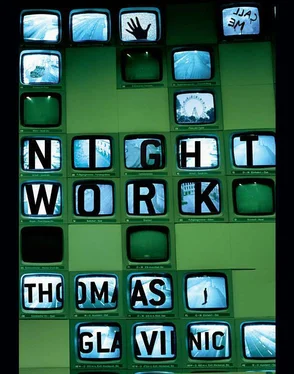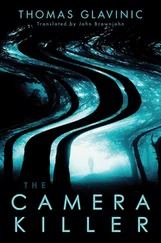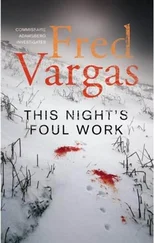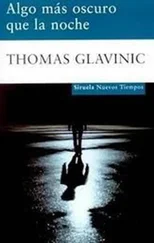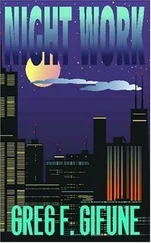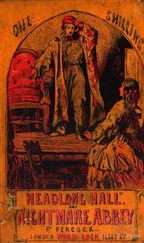Thomas Glavinic - Night Work
Здесь есть возможность читать онлайн «Thomas Glavinic - Night Work» весь текст электронной книги совершенно бесплатно (целиком полную версию без сокращений). В некоторых случаях можно слушать аудио, скачать через торрент в формате fb2 и присутствует краткое содержание. Год выпуска: 2008, Издательство: Canongate Books, Жанр: Современная проза, на английском языке. Описание произведения, (предисловие) а так же отзывы посетителей доступны на портале библиотеки ЛибКат.
- Название:Night Work
- Автор:
- Издательство:Canongate Books
- Жанр:
- Год:2008
- ISBN:нет данных
- Рейтинг книги:5 / 5. Голосов: 2
-
Избранное:Добавить в избранное
- Отзывы:
-
Ваша оценка:
- 100
- 1
- 2
- 3
- 4
- 5
Night Work: краткое содержание, описание и аннотация
Предлагаем к чтению аннотацию, описание, краткое содержание или предисловие (зависит от того, что написал сам автор книги «Night Work»). Если вы не нашли необходимую информацию о книге — напишите в комментариях, мы постараемся отыскать её.
Night Work — читать онлайн бесплатно полную книгу (весь текст) целиком
Ниже представлен текст книги, разбитый по страницам. Система сохранения места последней прочитанной страницы, позволяет с удобством читать онлайн бесплатно книгу «Night Work», без необходимости каждый раз заново искать на чём Вы остановились. Поставьте закладку, и сможете в любой момент перейти на страницу, на которой закончили чтение.
Интервал:
Закладка:
Shuffling impatiently from foot to foot, he watched the tailboard close with agonising slowness. Then he shot the bolt and jumped into the cab.
*
He drove as if he’d turned on an autopilot. His mind was unavailable. Now and then he registered some feature of the world outside. He noticed abrupt changes in weather conditions, but they didn’t affect him, they were like something seen on TV. He read place names: Rheims, St Quentin, Arras. They meant nothing to him. It was a new smell that brought him back to the present. The air was heavy with salt. He would soon be at the coast.
This realisation seemed to cheer Jonas and remind him of why he was here. He had banished the videotape to the nethermost region of his consciousness. He was hungry, he noticed. Not knowing whether he would come to another service area, he pulled up on the hard shoulder in the shade of some tall weeping willows. The sun was high in the sky. It was sweltering.
While applying a dressing to the gash in his arm, he ruefully contemplated the devastation brought about by his hurried departure. The butter was on the floor, likewise the bowl containing the rest of the peach compote. Bits of peach were scattered all over the three-piece suite. The upholstery was stained with spilt coffee, that was the worst thing. Jonas got busy with a swab. After that he lit the camping stove and heated up two tins of stew.
As usual, his tiredness returned after he’d eaten. It was only one o’clock. He couldn’t afford to take a nap.
He rinsed the plate and saucepan with mineral water beside the road. The empty tins he tossed into the ditch. He’d already got into the cab when he thumped the steering wheel, climbed out again and retrieved the tins, which he shoved under the Toyota for the time being.
He took the next exit road. Thereafter he followed the map. It was up-to-date and accurate, and he had no trouble finding his way. At 2 p.m. he pulled up not far from the yawning mouth of the Channel Tunnel.
He wasted no thought on Calais, which once he would have liked to visit. He couldn’t imagine driving through a sizeable town, not now. As few buildings as possible and as few things that were big and overwhelming, that was what he wanted.
He began his preparations at once. He wheeled the DS down onto the unmade-up road that ran along the fence enclosing the railway tracks. Armed with crowbar and wire-cutters, he went in search of a way through it. He found one after a few hundred metres: a gate used by construction workers for delivering building materials, and it was open. He took the crowbar and wire-cutters back to the truck.
He debated what to take in his rucksack. Food and drink, certainly, and cartridges for the shotgun. A torch, matches, a knife, some string. But were a raincoat and a spare pair of shoes indispensable items of equipment? Maps and first-aid dressings were more important. And ought he to take an extra can of petrol, or could he be sure of finding another vehicle on the other side?
It was half past three when he fastened the straps of the rucksack. He went and sat in the back of the truck, where he was at least shielded from direct sunlight, if not from the heat. His fingers felt for something to occupy themselves with. He longed to shut his eyes for a little, but he knew he wouldn’t open them again for hours if he did.
He took out his mobile. The network display showed Orange , so he could, in theory, have phoned even from here.
He skimmed through his stored text messages. All were from Marie and one was several years old. Jonas had anxiously preserved it every time he changed mobiles. It was her first declaration of love. She’d written it, because she’d been too shy to come out with it during their most recent conversation, even though everything had already been said or hinted at. They’d intended to see in the New Year together, but Marie’s sister had been taken ill and she’d had to fly to England unexpectedly. Her message was timed at exactly 0.00.
Approaching , he thought.
At one minute to four he climbed onto the roof of the cab. He followed the second hand on his watch. At 4 p.m. precisely he spread out his arms.
Now.
At this moment almost a dozen cameras were coming to life, filming a landscape that existed for them alone. That stretch of motorway near Heilbronn, that car park at Amstetten. They existed purely for themselves at this moment, but he would witness it. This selfsame moment was occurring throughout the world. He was capturing it in eleven different places. Now.
And this one. Now.
In a few days, possibly weeks, he would watch the films of Nuremberg and Regensburg and Passau and reflect that he’d been standing on top of the truck at that moment. That he had set off afterwards, and that at the moment recorded fifteen minutes later he would already be below ground. On his way to England.
*
He kept to the strip between the tracks. This was a smooth expanse of concrete, fortunately, so he didn’t have to ride over any sleepers. The tunnel was wide for the first hundred metres. Then the walls gradually converged. His headlight illuminated the tube in front of him. The clatter of the engine was amplified by the confined space, and he soon regretted not having worn a helmet. He didn’t even have a handkerchief he could have torn up for ear plugs.
He was so tired he kept throttling back in alarm, under the impression that he’d spotted some obstacle ahead. He also fancied he saw pictures, faces, figures on the walls on either side of him.
‘Hooo!’
He was bound for England, he really was. He had to say it aloud to make himself believe it. He was really on his way.
‘Hooo! I’m coming!’
He rode flat out, undeterred by the fact that he could hardly keep his weary eyes open and was having to screw them up against the headwind. All fear had left him.
He was the wolf-bear.
Nothing could stop him now. He would surmount every obstacle. He was afraid of no one. He was on his predestined way.
You’re close to collapse, said someone at his elbow.
Startled, he gave the handlebars a jerk. His front tyre grazed a rail. He managed to regain his balance in the nick of time and throttled back. He would have to lie down for a sleep as soon as he got to the other side, even if only in a field in pouring rain.
And then an obstacle really did loom up ahead.
He mistook it for an optical illusion at first, but as he drew nearer the reflection of his headlight in the tail lights banished all doubt. It was a train.
He dismounted but left the engine running so he could see. He rested his hand on one of the buffers of the rearmost carriage.
Jonas was now so bemused with fatigue, he considered pursuing his journey on the roof of the train. Then it occurred to him that he couldn’t get a moped up there for one thing, and, for another, that there simply wasn’t room on the roof for a moped rider.
He checked the sides. The train and the wall of the tunnel were forty centimetres apart at most.
A moped wouldn’t go through.
Only a man on foot.
*
He was halfway along the tunnel, he estimated. That meant a fifteen-kilometre walk with a torch in his hand and legs that could scarcely carry him.
He set off. One step, one metre after another, with a beam of light ahead of him. Descriptions of wartime experiences surfaced in his mind. People were capable of walking in their sleep. Perhaps he was asleep already. Without realising it.
Marie.
‘Hooo,’ he tried to call, but he wasn’t up to producing more than a hoarse, uncontrolled whisper.
Hearing a noise behind him, he stopped short and shone the torch. Nothing, just rails.
The next few steps were an immense effort. Mountaineers must feel like this just before reaching the summit, he reflected. One step a minute. Or perhaps not a minute, only seconds. Perhaps he was walking at a normal speed. He’d lost his sense of time.
Читать дальшеИнтервал:
Закладка:
Похожие книги на «Night Work»
Представляем Вашему вниманию похожие книги на «Night Work» списком для выбора. Мы отобрали схожую по названию и смыслу литературу в надежде предоставить читателям больше вариантов отыскать новые, интересные, ещё непрочитанные произведения.
Обсуждение, отзывы о книге «Night Work» и просто собственные мнения читателей. Оставьте ваши комментарии, напишите, что Вы думаете о произведении, его смысле или главных героях. Укажите что конкретно понравилось, а что нет, и почему Вы так считаете.
